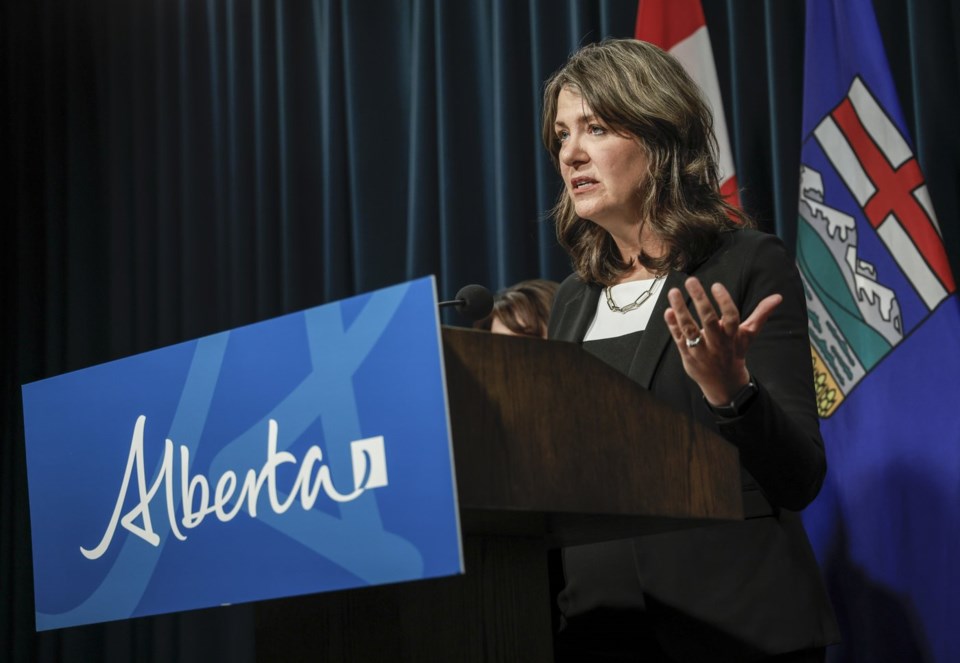CALGARY — Alberta Premier Danielle Smith says she doesn't want to be "exuberant about dodging the bullet" with U.S. President Donald Trump's latest tariff announcement but that it might push a trade agreement renegotiation until after the April 28 federal election.
The Trump administration went ahead Thursday with 25 per cent levies on all auto imports, which adds to existing 25 per cent tariffs on all steel and aluminum imports.
Canadian goods imported under the Canada-U.S.-Mexico Agreement on trade, known as CUSMA, remain spared from tariffs, though imports outside the pact will be hit with 25 per cent levies, including 10 per cent for energy.
Smith told a room of business leaders in downtown Calgary many sectors will still be hurt.
“It's hard for me to celebrate,” she said Thursday. She pointed to a “devastating” impact on the forestry industry, and for steel, aluminum and autoworkers.
She said a renegotiation of the Canada-U.S.-Mexico trade agreement, known as CUSMA, could be pushed until after the election, something she deemed “very positive."
Her comments come one day after she faced criticism for calling the latest development in the trade war an "important win” for Alberta and Canada.
For dozens of other countries, fresh import duties on goods to the U.S. will be 10 per cent or higher.
On Wednesday, Smith acknowledged there is still work to be done across Canada to eliminate the remaining tariffs and support affected workers. But Smith said: “It appears the worst of the tariff dispute is behind us.”
She added most Canadian goods sold to the U.S. will enjoy unencumbered trade for now.
"This is precisely what I have been advocating for from the U.S. administration for months."
That sparked Alberta NDP Leader Naheed Nenshi to quip that Canada got a reprieve compared to other countries, but “this is no time for victory laps.”
"It will hurt a lot of workers. It will hurt a lot of small, medium and large businesses. It will cripple Canadian industries," he said.
James Moore, a cabinet minister under former prime minister Stephen Harper, weighed in on social media, pointing out that thousands of Canadians may lose their jobs.
“With respect premier, this is not a good day for Canada or the world,” he said.
On Thursday, Prime Minister Mark Carney announced Canada will hit back with matching levies on vehicles imported from the United States.
Smith said she and her provincial counterparts are on board, and she believes the measures are proportionate and unlikely to result in further U.S. retaliation.
While Carney warned that Trump's campaign of trade hostility with countries worldwide will "rupture" the global economy, Smith was more measured, saying global markets are reflecting the trade uncertainty.
"We're watching with a lot of interest about how other nations respond," she said. "We're also doing our part to make sure that we are looking for new markets, too."
In the wake of Trump's action, the price of the West Texas Intermediate oil – the benchmark price for North American oil – slid by about US$5 per barrel Thursday to just under US$67. Alberta's latest budget predicted the average price of WTI to be US$68 a barrel in 2025.
The province estimates each lost dollar costs Alberta's treasury $750 million.
This report by The Canadian Press was first published April 3, 2025.
Lisa Johnson and Matthew Scace, The Canadian Press




